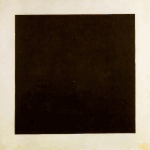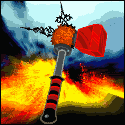|
MTG's system does have flaws for sure, but I'm not sure you can point to anything else and call it clearly better. Lands introduce a whole lot of variety and meaningful choices when it comes to deck building, because you have to make a whole lot of risk/reward decisions around how many colours you want to play in your deck, how many lands of each colour to play, how much you want your spells to cost (more powerful spells are more expensive, which both prevents you from casting them early and gives you the risk of not being able to cast them at all) and so on. The downside of having risk/reward decisions is, of course, that there has to be a meaningful penalty for being too greedy, and that you'll sometimes get hit with that penalty even if you made reasonable tradeoffs. Systems which aim to "solve" the variance in MTG often just end up removing those risk/reward decisions, and aren't necessarily better for it.
|
|
|
|

|
| # ? May 15, 2024 21:53 |
|
I don't think I'm exaggerating at all when I say that Magic owes 100% of its success to network effects.
|
|
|
|
silvergoose posted:...kinda like Race, or San Juan, or yeah. Not an uncommon mechanic. Or Twilight Struggle and most CDGs if we stretch it a little.
|
|
|
|
Jabor posted:MTG's system does have flaws for sure, but I'm not sure you can point to anything else and call it clearly better. Except Netrunner. And Battletech. And any other game that doesn't spike the resource system with incredibly high variance to aid deck construction. edit: Netrunner is the prime example of "strictly better than Magic" in nearly every way to the point where even Richard Garfield admits it.
|
|
|
|
VS System also had the cards as resources thing. Seemed to work well in the early stuff I played
|
|
|
|
Mince Pieface posted:Hearthstone to some extent has the same issue, although they add in additional variance by having randomized card abilities. I like how the "benefit" of MtG's lands can be replicated by replacing "Draw a card" effects with "Flip a coin, if heads draw a card." Jabor posted:MTG's system does have flaws for sure, but I'm not sure you can point to anything else and call it clearly better. Even if both players are playing it safe and running 24-land monocolor decks, one game in fifteen will be decided by one of the players drawing an opening hand of 0 or 1 lands, taking a mulligan, drawing a replacement hand with 0 or 1 lands, and not being allowed to play the game.
|
|
|
|
Bottom Liner posted:I agree, I was just joking about that being one of the least annoying parts of playing MtG. I personally love the way Hearthstone manages mana, are there any other card games that have a similar resource system? Mage Wars has a very elegant and much better Mana system than Magic. No randomness at all. Lottery of Babylon posted:Even if both players are playing it safe and running 24-land monocolor decks, one game in fifteen will be decided by one of the players drawing an opening hand of 0 or 1 lands, taking a mulligan, drawing a replacement hand with 0 or 1 lands, and not being allowed to play the game. This isn't a flaw of Magic, it is a deliberate feature. It psychologically allows players to never know if they lost because of skill/deck vs land screw. It keeps people playing and buying cards even if they are terrible at the game. Rutibex fucked around with this message at 11:59 on Apr 17, 2015 |
|
|
|
Gonna be playing Eclipse for the first time tomorrow, any newbie pitfalls I should know about besides missiles being OP?
|
|
|
|
nimby posted:Gonna be playing Eclipse for the first time tomorrow, any newbie pitfalls I should know about besides missiles being OP? Missiles are really good but they only work on the first round of combat, and early combats especially will take like a million loving rounds.
|
|
|
|
Broken Loose posted:Missiles are really good but they only work on the first round of combat, and early combats especially will take like a million loving rounds. That's more "don't buy missiles without targeting computers", though. The bigger mistake to avoid is overextending into bankruptcy. You can do this, and it's even wise if you found a couple of sectors with no or bad planets that you can remove influence from, but you need to be careful. Also don't expand into the middle too quickly. The outer ring is slightly poorer in terms of planets, but it's less likely to have Ancients and more likely to be exhausted early.
|
|
|
|
I'm reading the rules for Pax Porfiriana so I can teach it this weekend. Help. 
|
|
|
|
Fat Samurai posted:I'm reading the rules for Pax Porfiriana so I can teach it this weekend. I mean if it's too much effort just mail it to me.
|
|
|
|
Just solo a test game until it clicks. The rulebook is poo poo and it's impossible to explain it succintly and elegantly, but it's only a step above Munchkin in actual complexity.
|
|
|
|
nimby posted:Gonna be playing Eclipse for the first time tomorrow, any newbie pitfalls I should know about besides missiles being OP? Don't keep every tile you explore. Half those stacks are poo poo, don't be afraid to pass and Dr. Lunchables fucked around with this message at 13:27 on Apr 17, 2015 |
|
|
|
You guys convinced me to try Hearthstone (admittedly, I was skimming a bit). So far I like the predetermined mana income and selective mulligan. The game is definitely simple-seeming, and I might not care for it as a lifestyle game. But as a 10 minute timewaster with a deckbuilding puzzle to fiddle with, I quite enjoy it. I haven't found the instances of "you're randomly hosed" to be much worse than Dominion, maybe because games are fast enough that getting hosed occasionally isn't as big a deal. I think "solving" some of the randomness issues would add more overhead to the game and take away from the casual enjoyability of it (I guess that goes back to the "it's random so you don't know you suck" point).
|
|
|
|
The thing about Mana Screw is it allows for mana acceleration and ramp. Games where you gain 1 resource a turn or where anything can be played as a resource a turn, you cant ramp out, it gets too out of control. Those games also make it where missing a drop for that turn or failing to take advantage of all of your available mana a huge hit to your success. Yes it sucks getting only lands, but you can play stuff to color correct and accelerate. I would say the real issue more so than mana screw is that 20-30% of your deck has to be dedicated to lands, which means you have "less" fun cards to play with. It's such an important part to deck building that a lot of newer players cant balance it out properly. Any game that has tried to get around mana screw just introduces it's own new problems though.
|
|
|
|
Rutibex posted:This isn't a flaw of Magic, it is a deliberate feature. It psychologically allows players to never know if they lost because of skill/deck vs land screw. It keeps people playing and buying cards even if they are terrible at the game. What's your favorite talisman expansion? Dre2Dee2 posted:Any game that has tried to get around mana screw just introduces it's own new problems though. Have a look at games whose resource systems aren't just MtG's resource system with one minor tweak. For example, Netrunner has a good resource system.
|
|
|
|
Actually, if you like, really really want high-quality decks, it's pretty easy to make them yourself. I used this site: http://www.makeplayingcards.com/ to make a set of custom cards for my Pathfinder GM for his birthday. The hardest part of it was actually designing them myself, but the quality was great, cost me about 8 bucks for about 32 cards (and a big chunk of that was shipping, as I live in Canada) and we use them every week. The only thing you'd need to do would be to find the individual card art and make sure they're put with the right card backs...also I don't know how picky they are about copyrighted stuff.
|
|
|
|
I like the resource system in the Star Wars LCG.
|
|
|
|
Fat Samurai posted:I'm reading the rules for Pax Porfiriana so I can teach it this weekend. Is that thing due for a reprint? I'd love to give it a whirl.
|
|
|
|
Lottery of Babylon posted:What's your favorite talisman expansion? 
|
|
|
|
I've talked to several of the Magic designers about the mana screw/flood and the land-based engine thing. Essentially, they claim one of the biggest benefits of all this is that it allows for the possibility that a worse player with a worse deck can beat a better player with a better deck. I think this is somewhat of a copout defense. Couple that with the fact that all formats of Magic require you to spend lots of money to get the superior lands, and the fact that in Standard, the most popular format of Magic, these lands rotate out every 1.5 years, and it just makes it feel like they're just trying to exploit people. Sure, other games also try to have randomness in results of games, but they at least do so in ways like "you have to curve out" or "we'll decide damage with dice". Maybe I just played way too much Magic, but I find those newer ways of randomizing game results to be more acceptable than the way Magic wants to do it.
|
|
|
|
Broken Loose posted:Except Netrunner. And Battletech. And any other game that doesn't spike the resource system with incredibly high variance to aid deck construction. Basically this. Netrunner definitely has the best resource system I've seen in a card game - there's one primary resource, money, which is used to pay for playing cards and paying for many of their abilities. It has the deckbuilding puzzle of "how much economy vs non-econ cards do I want?", but that's supplemented by the fact that players get 3 or 4 actions on each turn. There are many different things you can do with those actions, but you can always choose to take 1$ or to draw one card. Whabam, suddenly you're never out of options. Not getting any economy cards? You can spend your turn gaining money or drawing cards to try to find them. And since the resource is how much money you have, there's no limit to how much you can play during a turn aside from the limited number of actions - if you have too many resource cards, you can usually just dump them all on the table and start getting benefits from them immediately, so getting TOO MANY resource cards isn't usually a problem either. Sure, you CAN get screwed over if ALL of your (non)resource cards are clumped at the bottom of the deck, but you always have some way of trying to get to those cards - so it doesn't feel as bad as drawing one card then passing your turn.
|
|
|
|
medchem posted:I've talked to several of the Magic designers about the mana screw/flood and the land-based engine thing. Essentially, they claim one of the biggest benefits of all this is that it allows for the possibility that a worse player with a worse deck can beat a better player with a better deck. I think this is somewhat of a copout defense. Couple that with the fact that all formats of Magic require you to spend lots of money to get the superior lands, and the fact that in Standard, the most popular format of Magic, these lands rotate out every 1.5 years, and it just makes it feel like they're just trying to exploit people. Sure, other games also try to have randomness in results of games, but they at least do so in ways like "you have to curve out" or "we'll decide damage with dice". Maybe I just played way too much Magic, but I find those newer ways of randomizing game results to be more acceptable than the way Magic wants to do it. I believe that sums up the rest of your post, actually. They haven't, and won't, change the resource format in Magic because it is very conducive to their marketing strategy. Regardless of how exploitative it is, it works. Edit VVVVVVVV: You realize that. I realize that. The rest of the thread probably realizes that. A new player won't realize that because that one time their opponent gets mana screwed is what they're going to remember because they totally beat an expert at the game. Hey, this game is cool, let's buy more cards. OmegaGoo fucked around with this message at 15:45 on Apr 17, 2015 |
|
|
|
medchem posted:I've talked to several of the Magic designers about the mana screw/flood and the land-based engine thing. Essentially, they claim one of the biggest benefits of all this is that it allows for the possibility that a worse player with a worse deck can beat a better player with a better deck. I think this is somewhat of a copout defense. Couple that with the fact that all formats of Magic require you to spend lots of money to get the superior lands, and the fact that in Standard, the most popular format of Magic, these lands rotate out every 1.5 years, and it just makes it feel like they're just trying to exploit people. Sure, other games also try to have randomness in results of games, but they at least do so in ways like "you have to curve out" or "we'll decide damage with dice". Maybe I just played way too much Magic, but I find those newer ways of randomizing game results to be more acceptable than the way Magic wants to do it. Lol, there's no way that is right. A lower skilled player will have a deck that is not as well made, meaning they are more likely to get mana screwed because their mana sources won't be as optimized. They also won't be as good as knowing when to mulligan/draw in.
|
|
|
|
Dre2Dee2 posted:Lol, there's no way that is right. A lower skilled player will have a deck that is not as well made, meaning they are more likely to get mana screwed because their mana sources won't be as optimized. They also won't be as good as knowing when to mulligan/draw in. They've said it many times and a lower skilled player these days will be playing the same decks as the top players because of netdecking, so rng can give them a win over a much better player. It's not rocket science.
|
|
|
|
Warhammer: Invasion had my favorite resource source that I've seen in a CCG/LCG. Imagine M:TG where, instead of having lands, you started the game generating 3 mana a turn (no colors), you could play creatures to a specific zone (called the 'Kingdom') where their Power added to you mana each turn (and that the Power of creatures generally ranged from 1-3, with 4 or 5 being rare and costly), but those creatures can not attack your opponent from this zone (it can still defend if that zone is attacked, though). And for the purposes of this analogy, imagine Artifacts usually having a Power of 1 or 2 that could contribute to this, but not for combat. Also, there's another zone (called the 'Quest') where the Power of cards played there gives you additional draws every turn. And a final zone (the 'Battlefield') where you play the creatures that are going to be doing the actual attacking. Now you have an actual economy to manage; if your Kingdom outpaces your Quest, you end up with lots of resources to spend with not enough cards to spend them on. And if the reverse happens, you have a hand full of cards that you don't have to resources to play. Spend too much time working on both, and you'll be overrun by creatures from your opponent's Battlefield; but if you rush out your Battlefield too soon without working on the other two, and you'll be out-economied. Other interesting elements were 'Loyalty' costs; instead of different colors of resources, a faction's more powerful cards required you to have a certain amount of cards from that faction already out in play. And you once per turn you could put down any card from your hand face-down into a zone to give it an additional hit point (each zone starts with 8 HP, destroying two opposing zones wins you the game), giving you something to do with copies of high-cost cards that you draw too early in the game. The game itself had some balance issues between factions, and a lot of potential for decks that were just unfun to play against, but I've never seen a card game of that format with a resource system that offered the same amount of meaningful decisions, and I'd love to see it used again (I don't know if FFG has used in any of their later LCGs; the only other one I've really played is Netrunner).
|
|
|
|
medchem posted:they're just trying to exploit people. Bingo! Wizards of the Coast has found a way to sell slot machines to kids. Dre2Dee2 posted:Lol, there's no way that is right. A lower skilled player will have a deck that is not as well made, meaning they are more likely to get mana screwed because their mana sources won't be as optimized. They also won't be as good as knowing when to mulligan/draw in.
|
|
|
|
Speaking of Netrunner, my local shop has a lot of players and it looks fun, but what do you really need to buy to get into it at this point?
|
|
|
|
Rutibex posted:Bingo! Wizards of the Coast has found a way to sell slot machines to kids. Hmm, where did I see someone say something like that before: Madmarker posted:.... and probably most importantly Magic unknowingly utilized (and now knowingly utilizes) the micro-transaction model, long before cell phone gaming was even a thing. A board game costs what 20, 30, 40, 100 dollars? A pack of magic cards costs 4 bux. 15 brand shiny new cards to look at and play with, so what if they are crap, its only 4 bux, people spend 4 bux on a whim all the time. Now just because it might take you 100 packs to get anything of value, doesn't mean squat, it provides immediate pleasure.
|
|
|
|
Bottom Liner posted:Speaking of Netrunner, my local shop has a lot of players and it looks fun, but what do you really need to buy to get into it at this point? Find a person who is leaving the game and buy their collection for 30% off. For casual play, come over to the netrunner thread for further discussion.
|
|
|
|
Bottom Liner posted:Speaking of Netrunner, my local shop has a lot of players and it looks fun, but what do you really need to buy to get into it at this point? Just buy the core box. It's everything you need to start. Ask the netrunner thread for more specifics. Enjoy your new money sink.
|
|
|
|
Netrunner looks cool, but how... um... "game-newbie-friendly" is it? Like, is it "don't even try to teach" or "it's not as hard as it looks to get into"? I think what gives me pause is having the layout be in so many different piles with their own terminology distinct from other games (different names for discard pile, etc.).
|
|
|
|
Netrunner's resource systems are legitimately good, pity about the rest of the game imo.
|
|
|
|
So, M:tG's Head Designer these days, Mark Rosewater, designed Kaijudo's resource system back in the day. He regards Kaijudo's system as a failure because it lacks randomness in access to resource. He doesn't use the "worse player can beat a better player" argument, but rather the deck design tension argument. If your resources are reliable, and you can be certain you'll be able to afford an expensive (and therefore more powerful) card reliably, you have more incentive to include more copies of that expensive card. If you use WoW's system for instance, your game can become dominated by 7-drops, which you will play consistently on your 7th turn, making the games more samey. I've forgotten the exact wording he used to describe the problem, and can't search his tumblr to find it, but I recall noticing that Netrunner's system did meet his description. Netrunner does have this design tension, where you can't just jam all the best (most expensive) ICE into your deck, but need something resembling a curve of costs. It's certainly possible to be resource starved in Netrunner; I think the strength of Netrunner as a game is that when you are being throttled by not drawing enough economy, you're not just hopelessly dead, but can struggle through it. Magic is less forgiving.
|
|
|
|
I refuse to believe that people in this thread are stupid enough to believe that Wizards of the Coast designed a CCG a quarter of a century ago with a resource system designed around MAXIMUM DOLLAR ACQUISITION (even though literally every story that comes out from the early 90's says that they didn't expect people to buy enough product that they'd even have a playset of a single rare (not that playsets even existed in the original form)) and are now refusing to change the core fundamental mechanic that they entire game is built on because they want EVEN MORE DOLLARS. Clearly that's a more believable story than the fact that it was a novel system at the time and that they've constructed a game of nearly 15,000 unique cards around and maybe gutting the core principles of the game isn't in anyone's best interest. Durrrr. Bold Face Text
|
|
|
|
JazzFlight posted:Netrunner looks cool, but how... um... "game-newbie-friendly" is it? It's got special "themed" names for everything. your hand is your grip. Your deck is your stack, unless it's the corps deck then it's how. and, unlike magic, the rules for effect timing are a lot less clear and have a ton of special cases. That said it's not that hard to actually start playing, but a game-newbie may have trouble understanding the basic strategy, because it's more open than a lot of games and how to win is less obvious.
|
|
|
|
Fun fact, Magic was originally planned to have different card backs for every expansion. It was only by virtue of one designer going "Uh maybe this is a bad idea" that this didn't happen.
|
|
|
|
Toshimo posted:Durrrr. If you're being serious you're confusing different points. Magic is successful because they got lucky and tapped (lol) into micro transactions way ahead of their time. Magic doesn't change how lands work because of tradition and seeing relatively high variance as a positive aspect of the game.
|
|
|
|

|
| # ? May 15, 2024 21:53 |
|
quote:Hate Magic I don't remember what prompted the anti-Magic rants, but I think the case against has been overstated pretty hard. Magic was an incredible design when it came out, and remains a strong one. I don't feel like a huge effort-post, but at very least: 1. The basic framework allows for one of the largest mechanically sound design spaces ever seen in a game. Yes there's been terrible, kludgey ideas, balance problems, and whole bad expansions. But there's also been thousands and thousands of interesting cards; at least an order of magnitude more than, say, Dominion - and the game feels very different in different modes. At pretty much every juncture, the design picked "the way that expanded design space" rather than "the way that made the game easy to learn". For example, cascading instant/interrupt style effects are pretty much universally avoided in games, because they create numberless complications for designers and players. But once you've bitten that (and 9 other) bullets, you're left with an amazing space that few games can match. 2. It's a high-luck, reasonably high-theme game that also must operate under an onerous constraint: you have to keep selling new cards, year in, year out, forever.. and yet it still supports a player eco-system of high skill players with long-term stable high ELOs. One of Garfield's most important theory bits is that luck and skill aren't competing aims in game design, and Magic is a prime example of how luck can make a game work better. It's easy to be condescending here and say "hurr hurr, idiots like luck games because they can win sometimes", but the reality is pretty much everyone feels that to an extent. Again, this is a core Garfield lesson - you want the player to feel like they win because they play well, and they lose because of bad luck. 3. The game works in a tremendous variety of ways. Do you want to play a Munchkin style take-that multiplayer game, where everyone gangs up on the first guy to get ahead? Play free-for-all multiplayer. You want to play a high-strategy team game that also rewards group co-operation, clever individual plays, pressing luck and reading your opponents? Try team sealed. You want an individual sport with a very high skill ceiling, that is continuously refreshed with new challenges? Draft new sets or make cubes. Or exercise your creative muscles, and play some odd constructed format. Going further, maybe you want an abstract puzzle that rewards creative thinking and lots of solo experimentation? There's formats like 3 card Magic (or liars 3 card Magic, which we used to have a super-fun thread supporting)... Or maybe you just want to collect cards with mediocre fantasy art and a variety of numbers. To be clear, all of the above is talking about the design of Magic. In practice, I can't heavily recommend Magic as a game to buy/play. Finding SOMEONE to play with is easy in most places, but finding a positive, reasonable play situation is often going to be hard. And here the variety of ways to play hurts you, because maybe the only thing local people play is some multiplayer BS; I think a reasonable percentage of Magic players have never really played it in a version I would like. It can also be expensive. So I'm not pushing Magic or something - as of now, I haven't played Magic in a while. But it's still a very impressive design, and at its best it's a very strong game. Magic wasn't a crappy game that happened to come in at the right time, get popular, and survive on that. It was a game that, because of its strength, succeeded despite arriving on a scene that was not really prepared to play or sell it. jmzero fucked around with this message at 17:03 on Apr 17, 2015 |
|
|









































